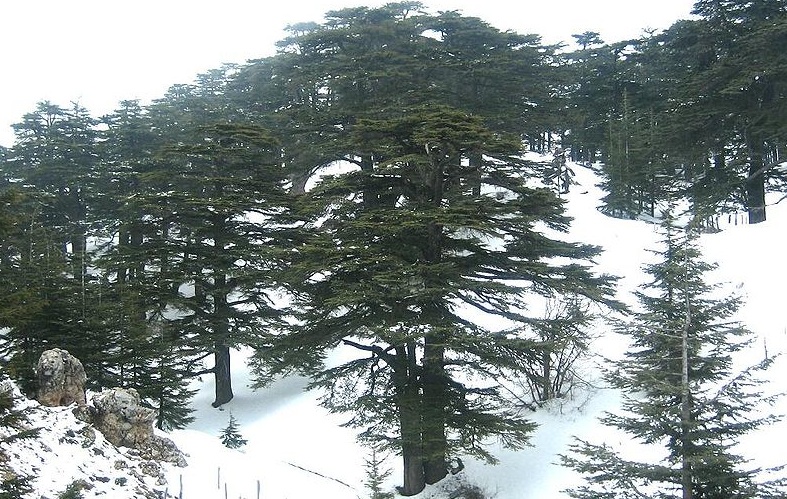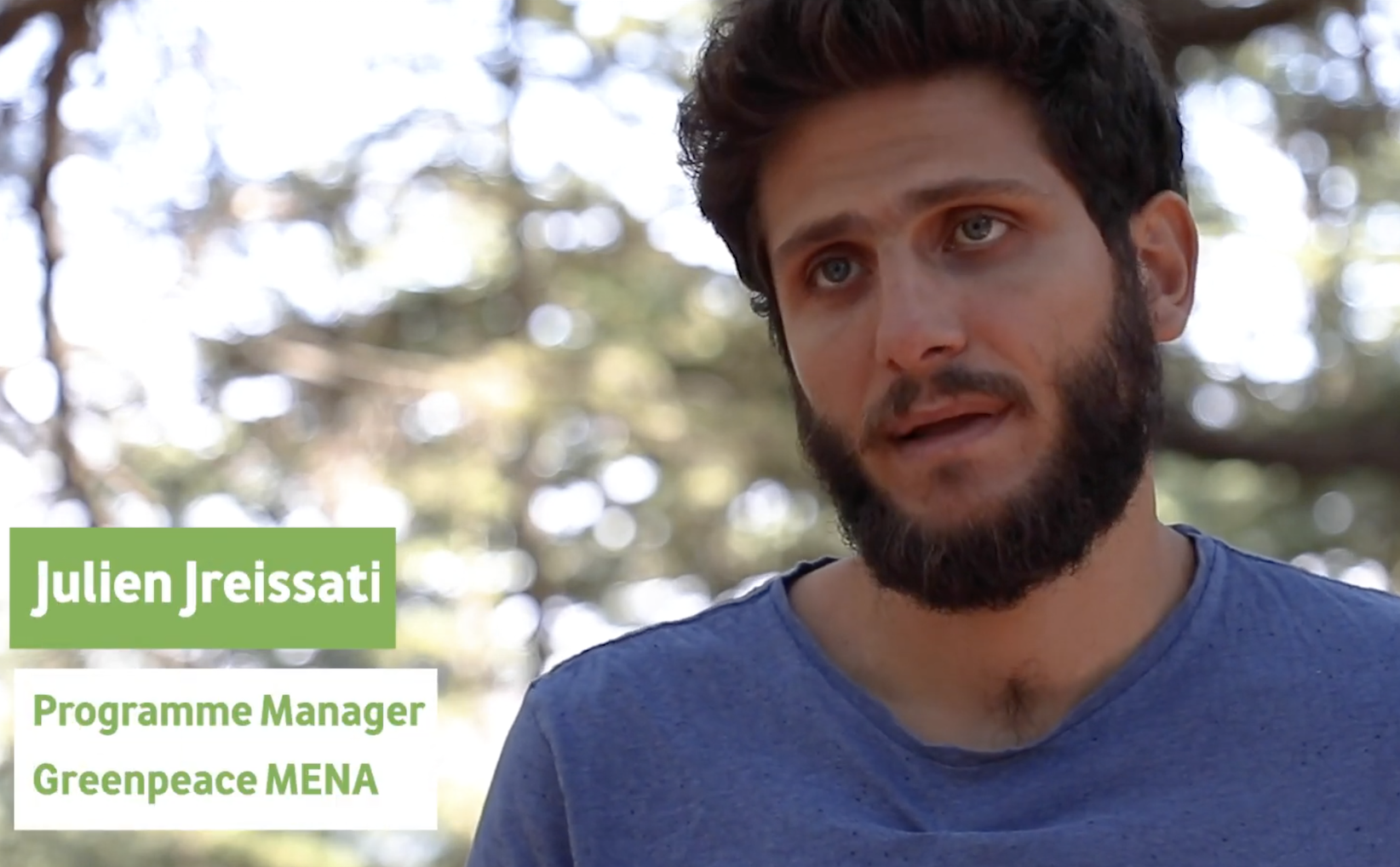Lebanese cedar trees, also known as the Cedars of God, are being decimated by climate change, a new video report released by Greenpeace explores. Climate change is impacting the Middle East in extreme ways – from drought and famine in Syria, to forest fires in Israel and Lebanon, to wars over water in Iraq.
The iconic cedar trees of Lebanon were used in the Holy Temple of Jerusalem and mentioned in the Old Testament, “The righteous flourish like the palm tree and grow like the cedar in Lebanon” (Psalm 92:12). They are also a symbol of strength and prosperity.
There are a total of less than twenty Lebanon cedar forests remaining. They are the only old-growth forests in the Middle East, with some trees being more than two thousand years years old.
Greenpeace is promoting a new film about the trees, the ‘Cedars of Lebanon’. This is the second film that was produced to document and highlight the devastating impact of global climate change on precious and unique ecosystems in the Middle East.

Ancient cedars of Lebanon in the snow
The documentary highlights the increasing dangers and risk factors that the shrinking cedar forests face due to climate change, which include parasitic infestation from insects and fungi, frost and heat stress, the halting of natural forest growth, as well as forest fires of unprecedented ferocity, scale and frequency.
These threats are compounded by issues such as overgrazing, tree cutting, and rampant urbanisation in Lebanon.

Julien Jreissati from Greenpeace
“The Lebanese Cedar tree, already unique and iconic species, is really suffering from unprecedented levels of stress and risk factors, the heat waves and forest fires of the past two years only increases their urgency,” warned Julien Jreissati, from Greenpeace.

This new video is a climate report dispatch. The majestic cedars of Lebanon are facing ruin
“By producing films such as these and working together with environmentalists and conservationists around the world, we document the effects of manmade climate change on our natural environment and work together to mitigate the risks and help develop sustainable solutions for its conservation.”

A blackened dead cedar tree in Lebanon
“The immediate and urgent effects of the climate emergency are annually becoming ever more apparent, not just with the destruction of our ecosystems, but with the annual loss of lives and livelihoods as a result,” added Jressati. “It is imperative that climate change is acknowledged and tackled as a serious threat that is already profoundly affecting our lives, and that the necessary policies are urgently implemented to mitigate that impact.”
Cedars of God? The Bible says so
The Cedar Forest of ancient Mesopotamian religion appears in several sections of the Epic of Gilgamesh, according to Wikipedia. And the Lebanon Cedar is mentioned 103 times in the Bible. In the Hebrew text it is named Hebrew: ארז and in the Greek text (LXX) it is named Greek: κέδρου.
- “Open thy doors, O Lebanon, that the fire may devour thy cedars. Howl, fir tree; for the cedar is fallen; because the mighty are spoiled: howl, O ye oaks of Bashan; for the forest of the vintage is come down.” (Zechariah 11:1, 2)
- “He moves his tail like a cedar; The sinews of his thighs are tightly knit.” (Job 40:17)
- “The priest shall take cedarwood and hyssop and scarlet stuff, and cast them into the midst of the burning of the heifer” (Numbers 19:6)
- “The voice of the Lord breaks the cedars; the Lord breaks in pieces the cedars of Lebanon” (Psalm 29:5)
- “Behold, I will liken you to a cedar in Lebanon, with fair branches and forest shade” (Ezekiel 31:3)
A global solution to local problems like the cedars of Lebanon?
Environmental philosopher and designer Pablo Solomon, weighs in:

Environmental artist and designer Pablo Solomon
“As you know, I have preached for decades that the simplest solution to absorbing man made CO2 is to plant more trees and other greenery. The catch is, you need fresh water ( of course this is not all true as the oceans absorb most of the CO2 and release most of the oxygen ). But in general, more greenery on the dry earth would solve the problem.
“So I again have preached that every drop of water already available as grey water should be used,” Solomon tells Green Prophet. “And all excess energy should be used to either reservoir water and/or to desalinate sea water. The Cedars of Lebanon — and other trees–would grow again with proper reforestation.
“Nature observation of the week–saw a grey fox jump up and pull pecans off of a low branch. It may surprise you that our part of Texas dry as it is, produces most of the pecans. In fact the guy who developed the modern species of pecans over a hundred years ago lived down our road in San Saba, Texas. The world record pecan tree–1,200 pounds in one year–is also down our road at Bend, Texas. (Colorado Bend State Park ).
“The trick is not irrigation, it is planting in existing river bottoms. My desire is that worldwide agriculture be done as much as possible without irrigation. For example, cotton.
“In an interconnected world, it is more possible than ever to grow crops in natural settings.
“Also, the expansion of urban areas over precious farmland drives me nuts. e.g.–Houston, Texas now has a 100 mile diameter covering some of the best soil in the best growing conditions in the world. However, some of this could be ameliorated with more planting in suburban yards, green strips, vertical greening, etc.,” concludes Solomon.
